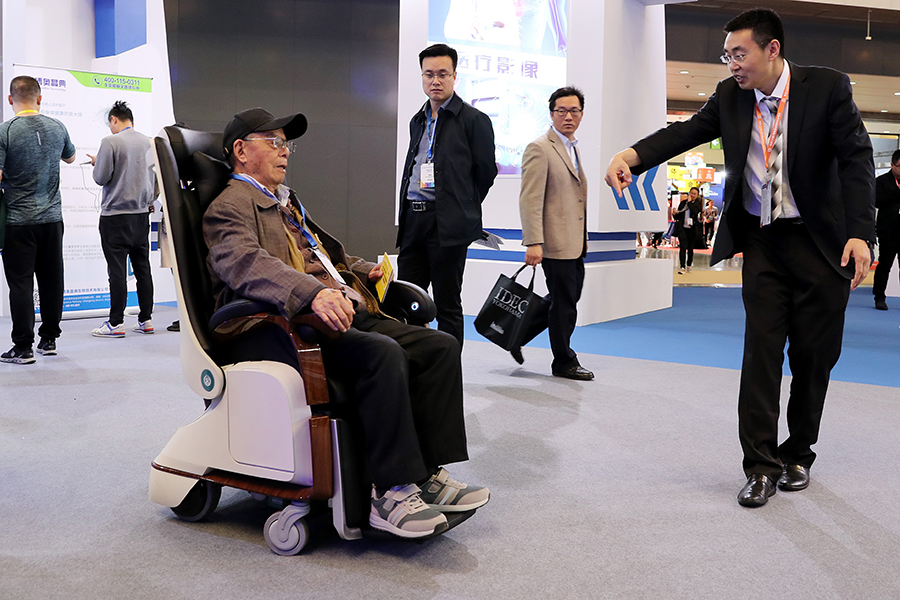Robots offer a helping hand in the home


David Qian, vice-chairman of Ecovacs, said floor and window-cleaning robots have already become everyday necessities, just like washing machines in many developed countries, and future domestic robots will be more intelligent. Robots that just clean the floors won't be enough.
"While making robots versatile, it is important to ensure they are easy to use," Qian said. Suzhou, Jiangsu-based Ecovacs is set to export its smart vacuum cleaners to markets involved in the Belt and Road Initiative, having already established a strong presence in developed economies such as the United States, Germany, Italy and Japan.
Thanks to the progress of voice recognition technology, a string of home entertainment and security robots are also coming to the market. They can read out or display news and weather bulletins, enable home surveillance via livestreaming, and detect potential dangers such as smoke or suspicious movement.
In 2016, the Ministry of Industry and Information Technology unveiled an ambitious plan to sell more than 30 billion yuan of service robots by 2020, to meet the demand from the healthcare, education, entertainment, medical and defense industries.
The demand for elderly care robots is particularly strong. More than 240 million people were 60 years of age or older in China in 2017, and the figure is estimated to hit 400 million in 2033, according to official data.
One company is moving quickly to meet such demand is Avatar-Mind, a Nanjing, Jiangsu-based robotics maker. It has developed iPal, a humanoid robot to serve the elderly.
The iPal robot can perform Chinese opera, reacts to touch and voice inputs by turning its head toward users, and can hold simple conversations. It can also give weather reports and remind users to take their medicine.
Wang Wenping, marketing director of AvatarMind, said there are three stages in the evolution of the service robots in China: tool, governor and companion.
"China is transforming from the "tool" stage, where robots are mainly used to do household chores, to the "governor" and "companion" stages, where the main objective is social interaction," Wang added.


















